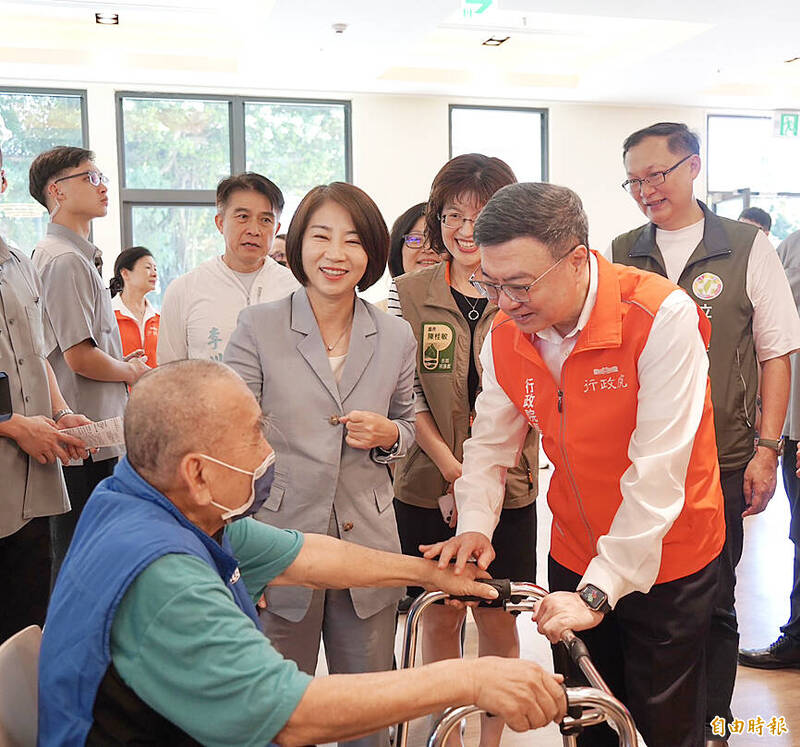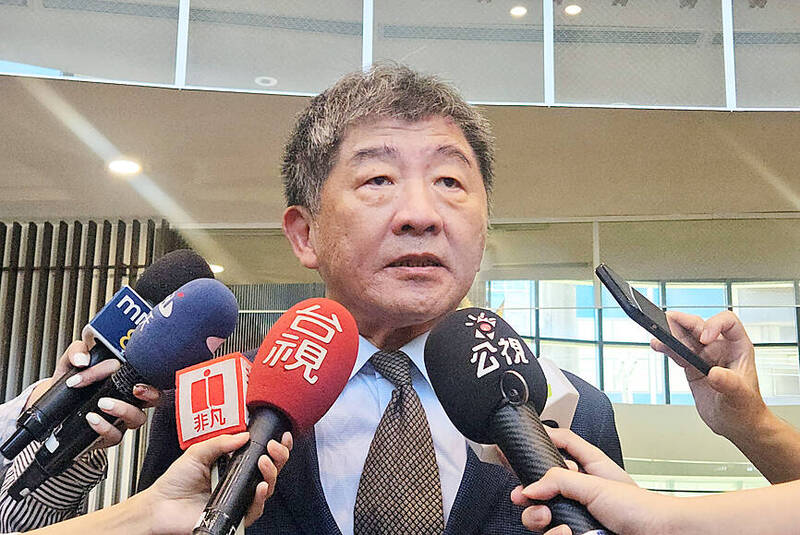《TAIPEI TIMES》 NT$30,000 baby subsidy is not final: premier

Premier Cho Jung-tai, front right, talks to an elderly man at an integrated long-term care facility in Pingtung yesterday. Photo: Lo Hsin-chen, Taipei Times
By Lo Hsin-chen and Esme Yeh / Staff reporter, with staff writer and CNA
The government is dedicated to improving the nation’s low birthrate and plans to offer a monthly baby bonus are being discussed, Premier Cho Jung-tai (卓榮泰) said yesterday morning, adding that a report that the monthly incentive would be set at NT$30,000 (US$913) is not final.
Minister Without Portfolio Chen Shih-chung (陳時中) said in an interview published yesterday in the Chinese-language United Daily News that the government is formulating a birth subsidy program that would provide a monthly bonus of about NT$30,000 for each baby until they reach kindergarten age.
When asked about Chen’s proposal, Cho said during a visit to Pingtung County that the government has continued to invest in solutions to solve the birthrate problem, such as offering more public childcare services, while the birth subsidy program is being planned.
“I requested Minister Chen to gather information and conceive an initial plan based on reasonable calculations — not that we could come up with an exact number immediately,” he said.
A monthly bonus of NT$30,000 is an estimate that needs further discussion, he added.
The goal of the birth subsidy is to encourage young people to have children without being burdened by financial concerns, but the government “has yet to reach the stage” of finalizing the exact amount of the subsidy and its implementation timeline, the premier said.
In the interview, Chen said that many Taiwanese dare not have children due to concerns over the financial burden.
While the government’s subsidy policies used to be indirect, a larger baby bonus remitted directly to personal bank accounts could incentivize people to have more children, he was quoted as saying in the interview.
For example, Hungary used to have a sub-replacement fertility rate of 1.1, but this has risen to 1.6 in recent years after a cash subsidy went into effect, he said.
The Healthy Taiwan Promotion Committee estimates that a monthly bonus of NT$30,000 for each of the approximately 130,000 newborns each year would result in a monthly expenditure of NT$3.9 billion or require an annual budget of nearly NT$50 billion, he said.
The amount is seemingly massive, but still less than one-fourth of the recommended amount for childcare subsidies, which should be NT$200 billion in Taiwan, making up 2 percent of GDP, it reported Chen as saying.
Meanwhile, Minister of Health and Welfare Chiu Tai-yuan (邱泰源) yesterday said that any proposal that helps implement the government’s childcare policy is worth discussing.
Democratic Progressive Party Legislator Lin Yueh-chin (林月琴) said that generous birth subsidies could help boost the birthrate, as many of her female acquaintances have said they are willing to have children if the monthly baby bonus is set at NT$30,000.
Aside from the cash subsidy, providing high-quality kindergartens and infant care centers are also important, so that parents could go to work without worries, she said.
新聞來源:TAIPEI TIMES

Minister Without Portfolio Chen Shih-chung answers questions by reporters on the sidelines of an award ceremony at the Ministry of Health and Welfare in Taipei yesterday. Photo: CNA





















